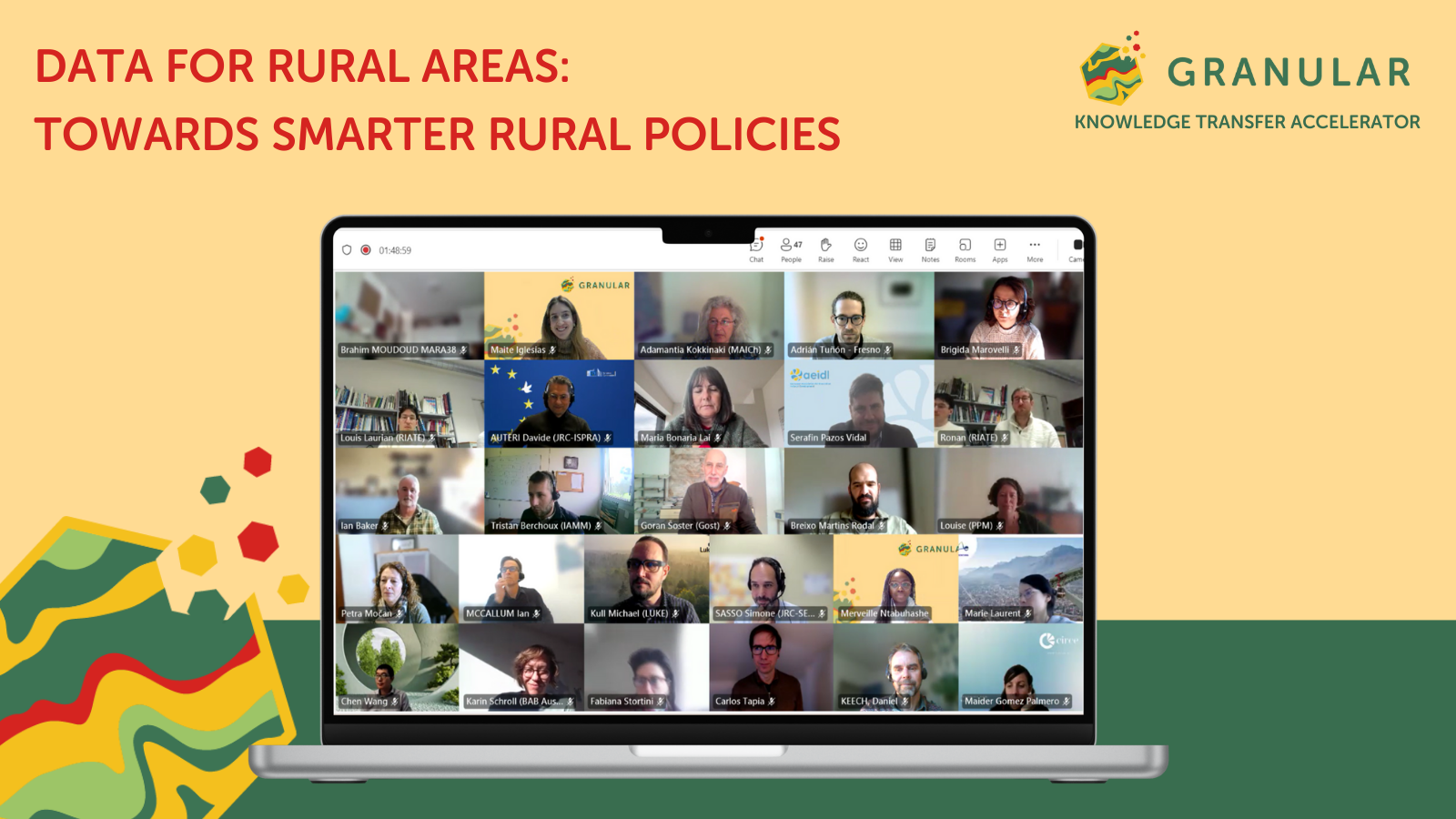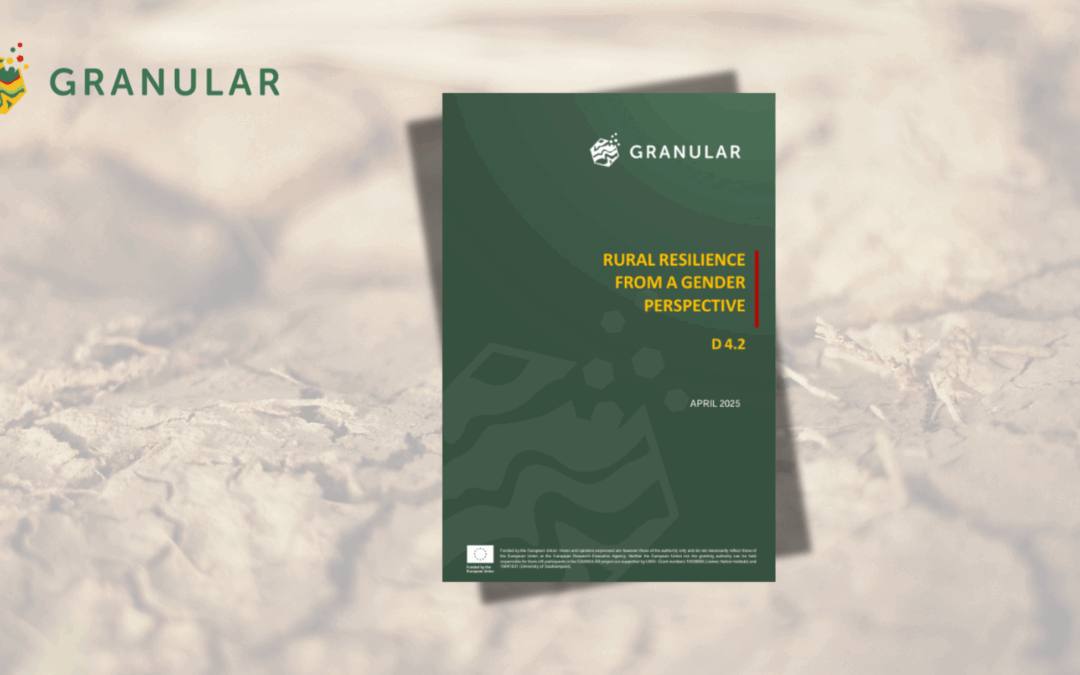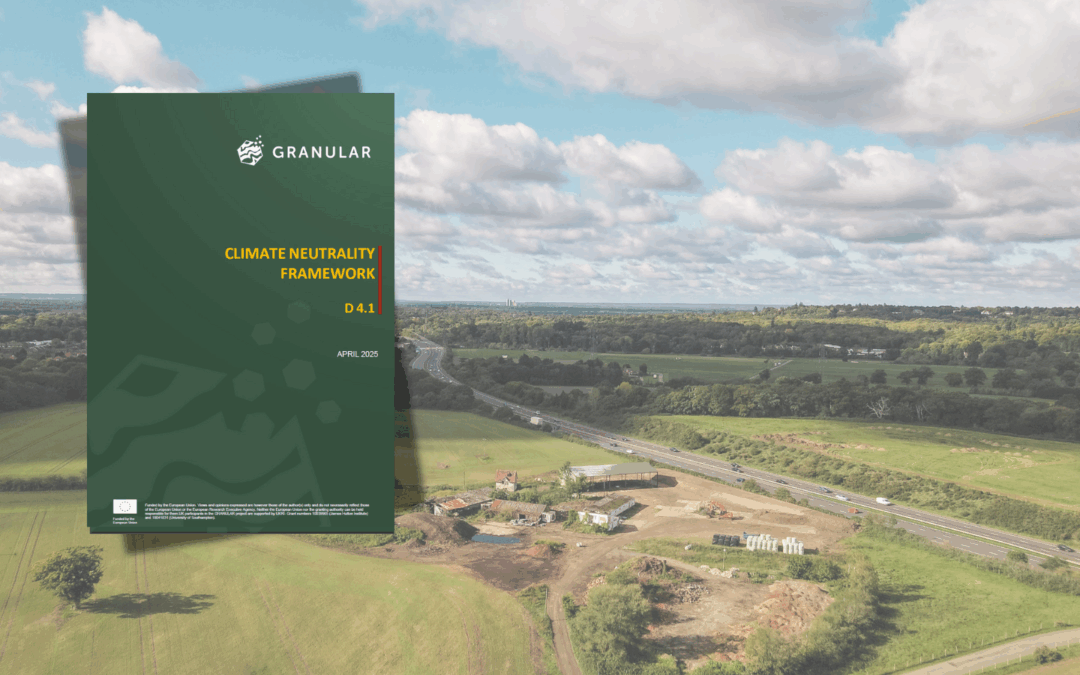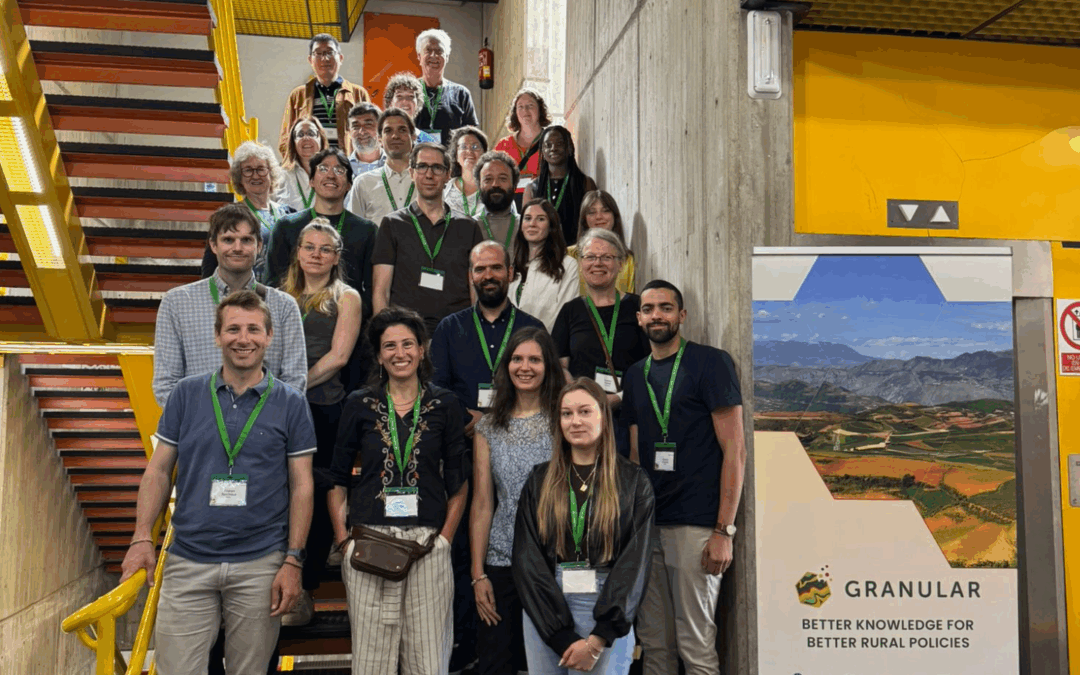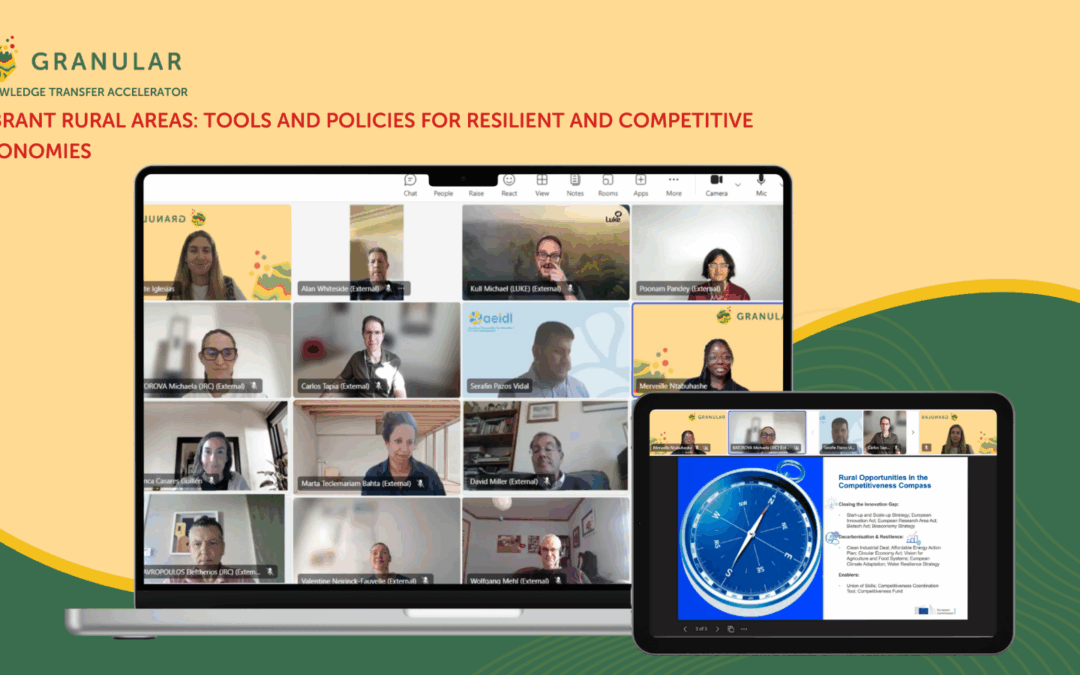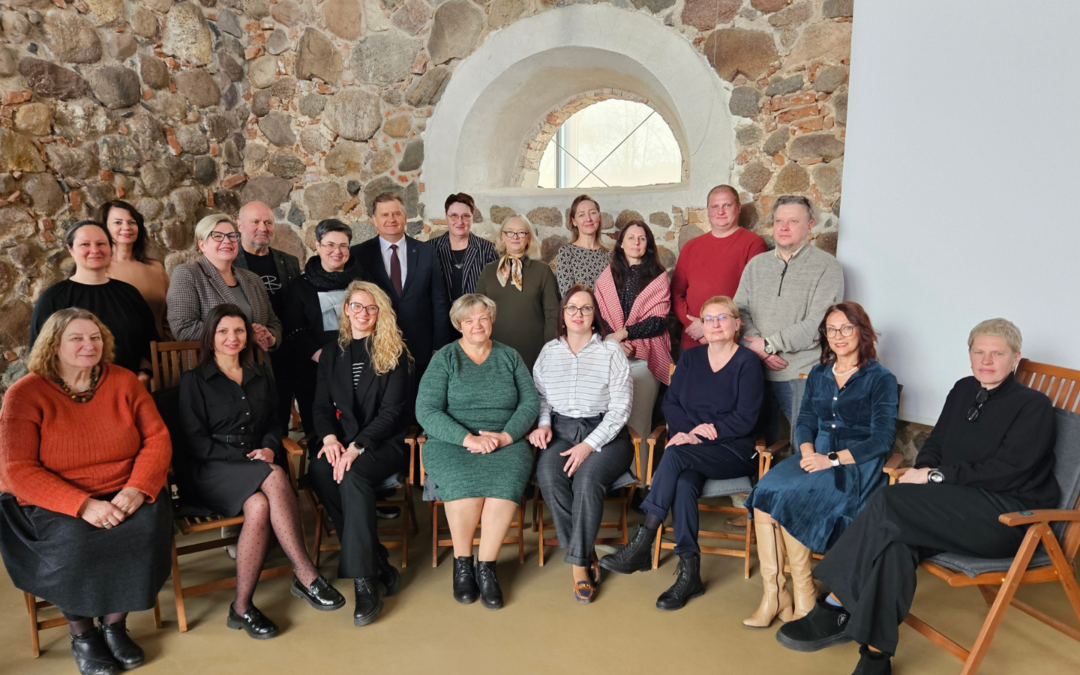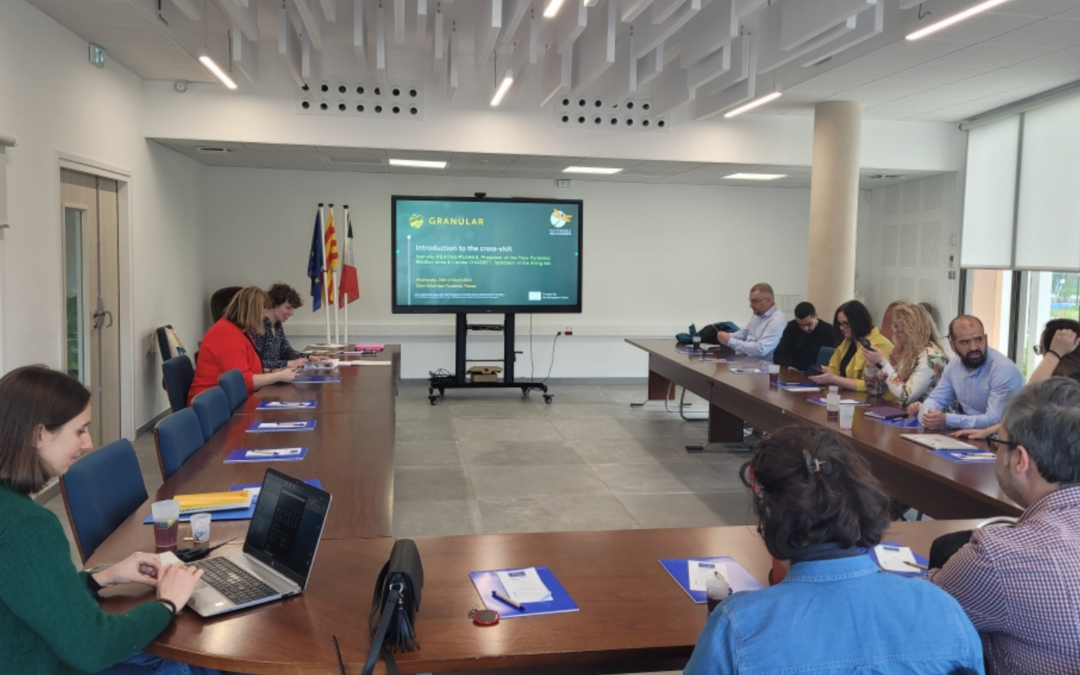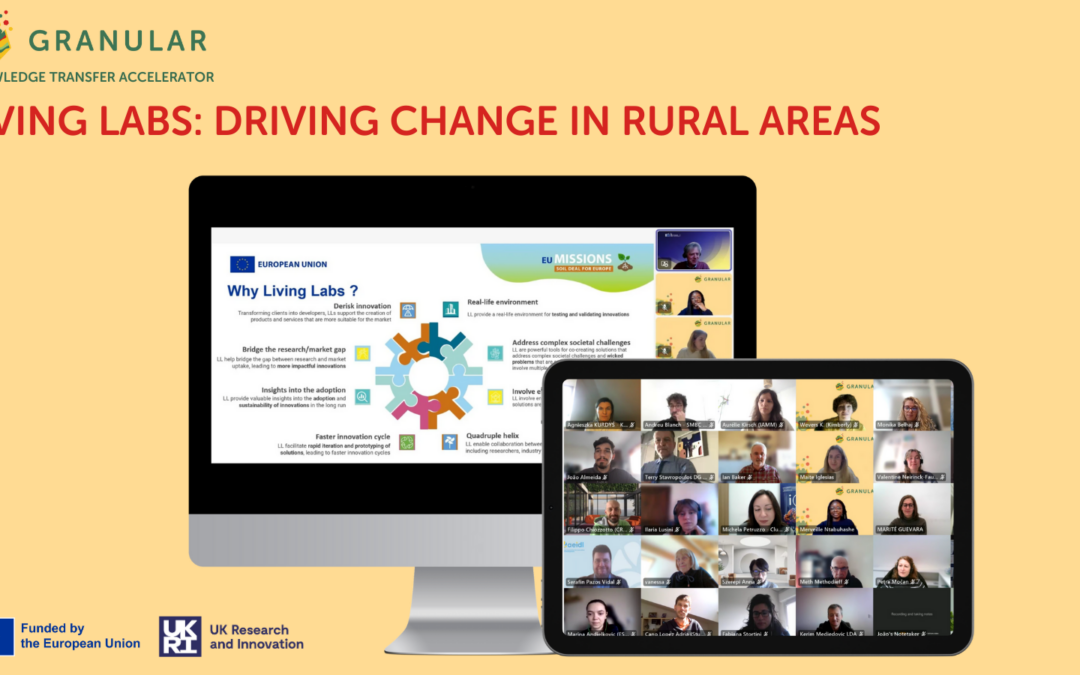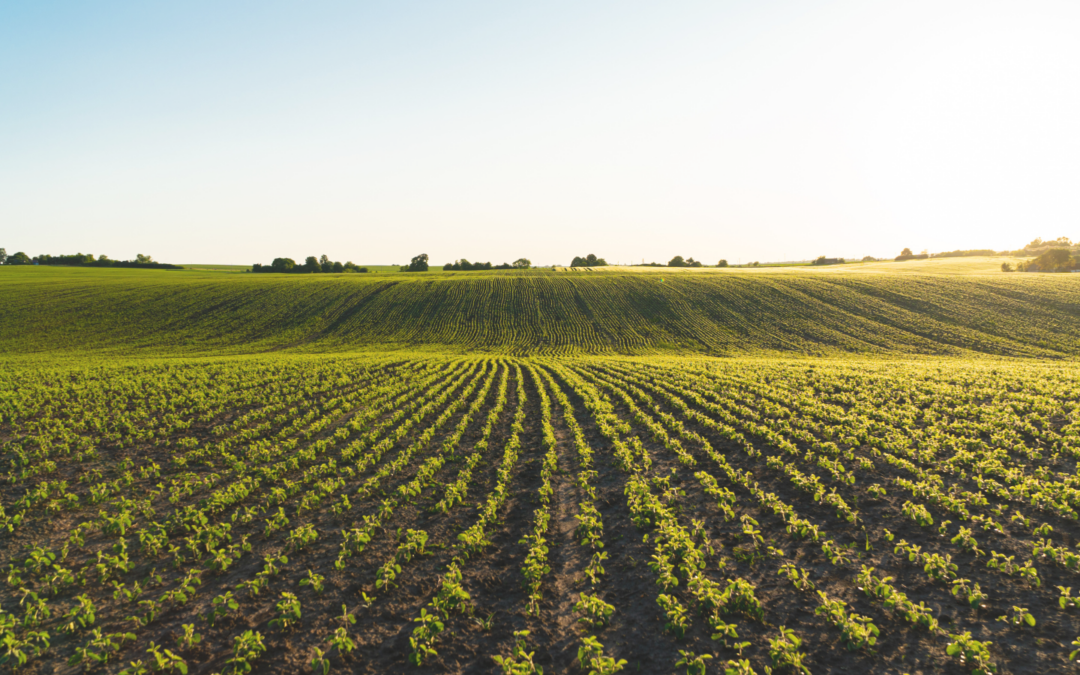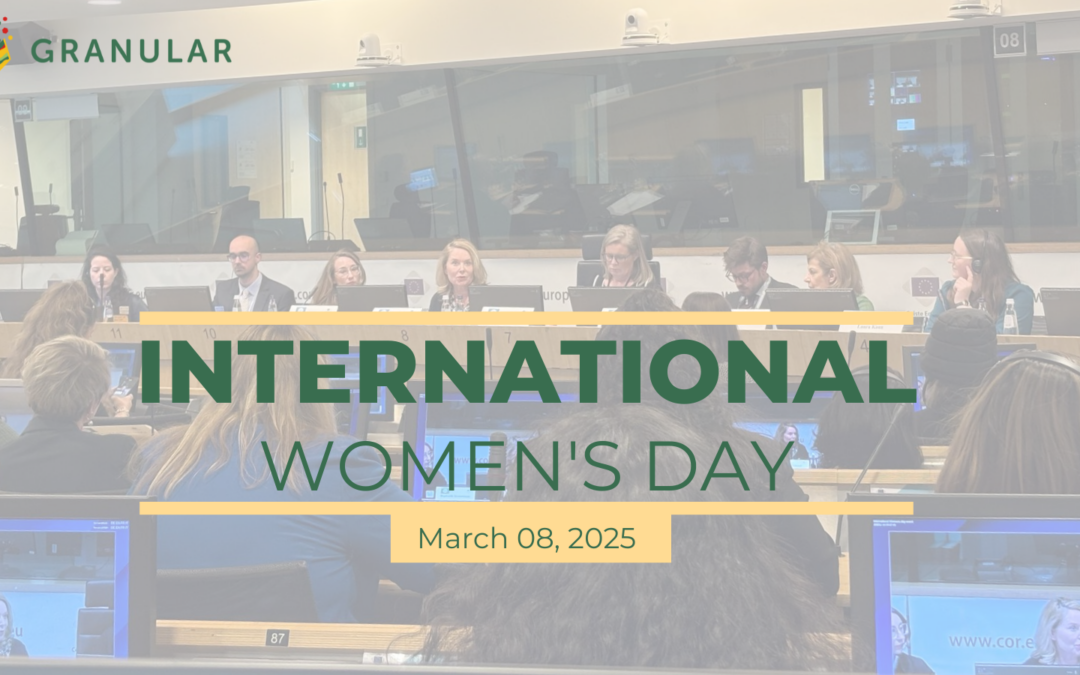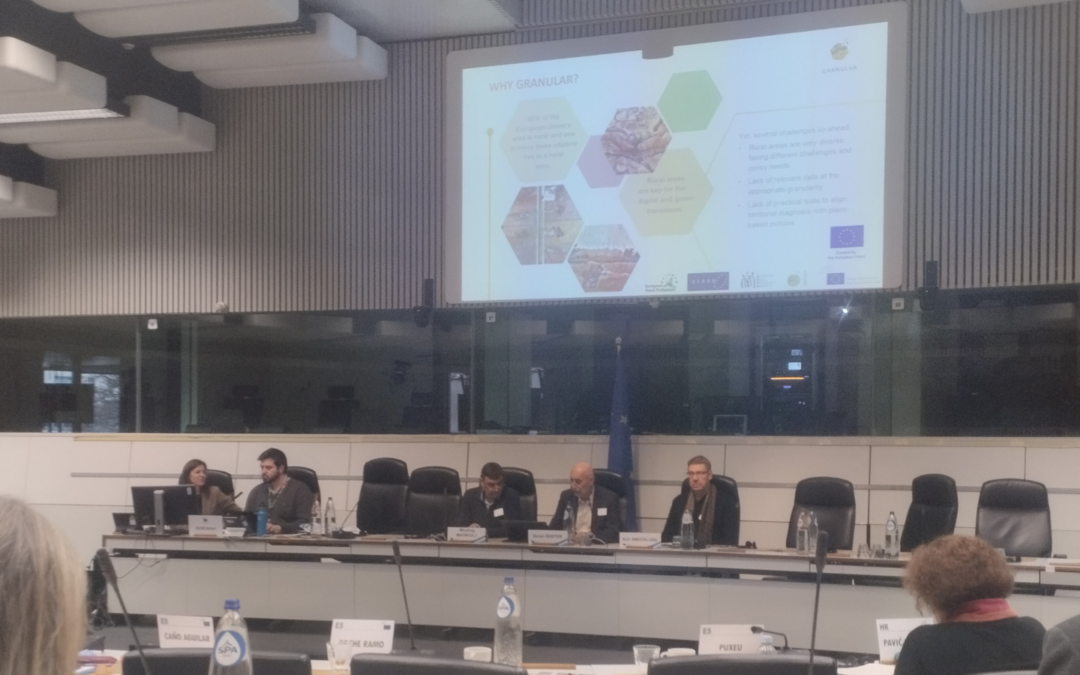Author: Merveille Ntabuhashe (AEIDL)
Yesterday, 75 actors convened to GRANULAR webinar to discuss the critical role of data in understanding and supporting rural communities. Organised by the European Association for Innovation in Local Development (AEIDL) as part of GRANULAR Knowledge Transfer Accelerator, the webinar highlighted the need for granular data that accurately reflects the diversity of rural areas, as well as the importance of collaboration and knowledge sharing for evidence-based policymaking.
Overview of rural data needs in Europe
Simone Sasso from the European Commission’s Joint Research Centre (JRC) presented insights on the distribution of startups across European territories, highlighting the importance of innovation and entrepreneurship in addressing the demographic and economic challenges facing rural areas. His analysis showed that while the share of rural startups varies widely across countries, certain rural areas demonstrate higher entrepreneurial dynamism than expected based on population distribution.
The presentation also shed light on the sectoral distribution of startups, noting that certain high-tech sectors, such as transport, energy, and robotics, have a relatively higher presence in rural regions compared to sectors like media, marketing, and fintech, which are more concentrated in urban areas. The JRC is conducting ongoing research to develop rural-proofed indicators and understand innovation patterns in rural areas.
David Auteri (from the JRC) provided an overview of the Rural Observatory, a JRC tool that disseminates indicators and data on rural areas. The Observatory features experimental indicators based on various data sources, including land use data from JRC, speed test data from Ookla, and open street map data. The Observatory also provides insights into renewable energy potential, demonstrating that rural areas hold significant potential for renewable energy production.
Benchmarking and innovative data collection methods
Ian McCallum from the International Institute for Applied Systems Analysis (IIASA) and Michael Kull from the Natural Resources Institute Finland (LUKE), presented their work on benchmarking rural data.
Ian McCallum presented the Screening Rural Data Sources (2023) report, emphasising the need for new data to showcase the diversity of rural areas, aligning with the European Commission’s rural vision. He explored various data sources, including traditional statistical data, big data, earth observation data, sensor data, and social media data, to address different themes of rural diversity (i.e.productive, recreational, environmental, and residential). He also highlighted the use of open data sets like Open Street Maps and social media platforms to glean insights into rural economies, tourism, and mobility patterns.
Michael Kull discussed the findings from the report Exploring Rural Data Landscapes: A Benchmark of performance and costs in the EU and beyond (2023). He presented the results from a survey of national statistical offices and authorities in the EU and other GRANULAR partner countries, revealing the availability and cost of rural data, the finest resolution available free of charge, and future expectations. His presentation also showcased inspirational examples of data collection tools and methods from various GRANULAR partner countries, demonstrating the diversity of approaches and innovations.
Data for policymaking
Louise Chasset, from Pays Pyrénées Méditerranée, highlighted the importance of data for policymaking based on her experiences in a rural area in the South of France. She showcased the GRANULAR Living Lab’s work in developing data to address local challenges related to mobility, outdoor activities, and forest management. She emphasised the importance of developing data culture by involving data users and producers, organising workshops and data clubs, and engaging elected representatives and residents.
Innovative methods to collect and expand rural data
Ronan Ysebaert and Louis Laurian, from the National Center for Scientific Research (CNRS-RIATE) presented a methodology for building accessibility indicators using crowdsourced data from Open Street Map. The methodology, based on open-source solutions, enables the assessment of travel time and opportunities for the population to access key services. The presentation highlighted the potential of Open Street Map data while acknowledging its limitations in terms of completeness, especially in rural areas.
Finally, Breixo Martins Rodal from the University of Vigo introduced data collection methods employed in their Granular Living Lab in Ourense, focusing on population and aging issues in the region. He discussed the challenges of using general indicators at higher levels and the need for granular data at the local level. He showcased their mixed-methods approach, including analysis of interviews with centenarians, utilisation of telecare system data to assess emergency risks, and participatory processes to gather insights from the community.
This webinar was organised as part of GRANULAR Knowledge Transfer Accelerator, a community aiming to promote collaboration and knowledge-sharing among stakeholders working on rural development. Interested actors can join the KTA Community by registering here.
